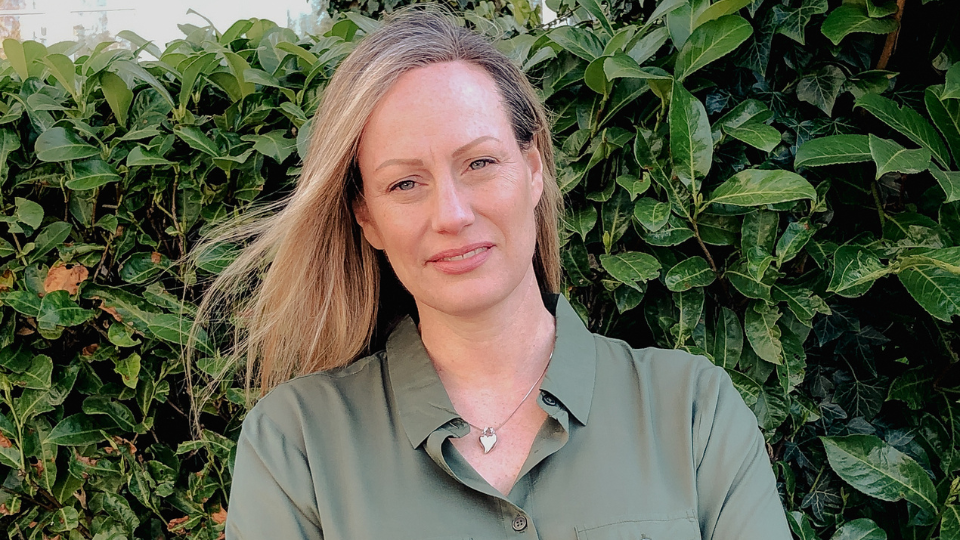Michelle Edmondson PhD student, University of Cumbria Article based upon webinar delivered January 2024 When considering how business psychology and whistleblowing can interact let’s start with a definition of whistleblowing, as this can be complex. A common and well used definition of whistleblowing defines it…

Article based on webinar delivered in February 2024 – ‘How behavioural science can support the cultivation of authentic leadership.’
Author: Ross McIntosh
In this article I’ll present my conceptualisation of the skills from Acceptance and Commitment Therapy (ACT) to support leaders in the development of their authentic leadership style. In essence, I believe the cultivation of the skills from ACT can help a leader adapt to the fluctuating forces of the workplace whilst remaining flexibly aligned to what matters to them.
About me
I specialise in designing and delivering workplace training and coaching, founded in Contextual Behavioural Science, particularly ACT. For the last 10 years I’ve been building deep expertise in the application of ACT to a variety of workplace contexts. My clients included over 20 NHS Trusts, HM Treasury, Teachers, Fast Moving Consumer Goods, Financial Services and Professional Ballet Dancers. As part of my freelance role, I’m in an ACT research/practitioner partnership with Dr Paul Flaxman, at City, University of London. To reach more adults in the workplace with ACT based skills I am also the founder and host of the People Soup Podcast. The mission of the podcast is to unlock workplace potential with expert insights from Contextual Behavioural Science.
Authentic Leadership
People talk about authentic leadership a lot and sometimes articulate the idea of bringing your ‘whole self to work’. Then, when someone brings their whole complicated, messy self to work, they say – “hell no I didn’t mean that!” I’ve also experienced leaders (and for that matter, those they lead) using authenticity as an excuse or explanation for rigid or unhelpful behaviour “Oh that’s just who I am – get used to it – I’ll never change.”
Dr Fiona Beddoes Jones describes authentic leadership, based upon her research, as “doing the right thing whilst being yourself”. This definition is more useful and captures the agility required to be an authentic leader.
Applying ACT to authentic leadership
ACT is represented by a set of six processes, all of which are designed to enhance psychological flexibility (see figure 1) and are aligned to the individual and responsive qualities required by an authentic leadership style.

Figure 1 – The ACT Hexaflex
Personally, I would never seek to explain these six processes to a workplace audience. It takes them away from experiencing the skills in action to a more ‘heady’, cognitive space.
To engage with leaders, I present the six processes as three skills of Awareness, Authentic Action and Adaptability (see Figure 2).

Figure 2 – An overlay of the ACT Hexaflex with the three skills
In working with leaders in a variety of contexts, they often describe the environment as relentless, which can leave them feeling depleted of resources and energy. This could mean that they miss perspectives, opportunities and connections, which could leave them feeling frustrated, confused and exhausted.
In the next section, I’ll describe the skills from ACT and show how they can support leaders in the navigation of those relentless environments whilst nurturing their authentic style.
How can the skills from psychological flexibility support the cultivation of authentic leadership?
- Skill 1 – The Pause
The first step in building psychological flexibility is the pause, and I distinguish between the macro and micro pause.
A macro pause could be a reflection and review of your leadership style where you consider what matters to you as a leader and how you would really like to be. This could occur through a regular reflective habit, a coaching engagement or in the process of applying for a new role.
A micro pause is more in the moment. Can a leader catch their behaviour “in flight” and consider whether it’s appropriate for the circumstances in which they find themselves? In the moment, a leader pauses to consider how they are showing up and whether they need to adjust their trajectory to enhance their impact.
- Skill 2 – Awareness
As leaders, how can we build our awareness of ourselves and our environment?
We can sometimes miss out on what’s going on around us, at the level of our team, our organisation, our clients or national and global developments. We can sometimes be caught up inside our heads, which means that we might miss out on cues, opportunities, and threats.
We can also be unaware of how we’re showing up as a leader. We’ve all developed ways of being as a leader. Often these are habits that once served us well, but now, as the context has changed around us, they are less useful and impactful. If we’re not aware of how we’re showing up, we can miss out on the opportunity to adapt our style and be the most appropriate version of ourselves in that context.
Of equal importance to the awareness of ourselves and our environment is an awareness of our inner world, that is, the content that our minds produce. Sometimes those thoughts, emotions, memories, sensations and urges that are generated by our minds are not useful in helping us move towards who we would like to be. If we’re unaware of that unhelpful stuff it can really influence the way we show up, derailing our chance to express our authentic style.
For example, if I find myself lacking as I compare myself to my colleagues, the associated thoughts and emotions might mean that I show up as someone who is a bit ratty and tense in the office. These behavioural qualities could also seep into my life outside of work.
Skill 3 – Authentic Action
As leaders, how often do we pause to think about how we would like to impact and what we would like to role model for others?
Pausing to consider what personal values or qualities of behaviour we would like to bring to our leadership behaviour can feel a bit daunting or self-indulgent. Perhaps it would be better to crack on with that to do list? I would suggest that a regular review of our personal values is essential for our evolution as a leader. If we take a macro pause and reflect on our personal values, those qualities that have deep resonance and meaning for us, we can then consider ways in which we can express them in our behaviour. With practice, we can use those personal values as a guide for making decisions, how we communicate, the way we tackle difficult issues and much more.
Skill 4 – Adaptability
As leaders, can we flex to be the most authentic version of ourselves, in any given context?
A day in the life of a leader can cover a variety of contexts. We might go from a meeting with our boss, to a whole team meeting, to a stakeholder engagement followed by a one to one with a team member.
The more we build our awareness, the more we can make a choice about how we would like to show up in the current context, deploying our personal values in an appropriate way without getting tangled up in the unhelpful content that our minds can generate.
Being adaptable is about recognising when the content of our minds has the potential to derail our desired authentic behaviour and choosing instead to redirect our attention and energy towards our personal values, using them as a beacon for our behaviour.
Conclusion
In this article I have tried to illustrate the utility of the skills from ACT to cultivate a more authentic and consistent leadership style, in essence, a way of being the leader you would like to be, a bit more often. There are many ways that these skills from ACT can be cultivated and practiced in both group and individual engagements. The more we practice the skills, the more we develop the possibility of building new habits which not only help us navigate those relentless work environments, but also enhance our psychological flexibility and authentic leadership style.
Contact and Connect with Ross – https://linktr.ee/PeopleSoup
Dr Fiona Beddoes-Jones – Authentic Leadership – The 3 Pillars Model
Dr Fiona Beddoes-Jones – The 10 Principles of Authentic Leadership



